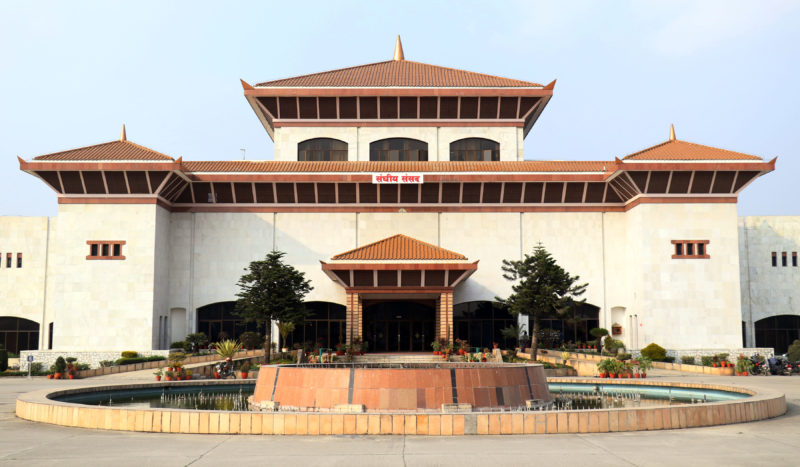Citizenship bill unlikely to be passed this session
- Parliament passed 15 bills related to fundamental rights on Sunday, but stateless people will not be able to enjoy the fundamental rights
Kathmandu, September 17
Children of citizens by birth and Nepali women married to foreign citizens who had hoped that the Parliament would pass the citizenship bill in this session of the Parliament must wait.
The Parliament, which used fast-track process to pass the bills related to enjoyment of fundamental rights, did not use the same process to pass the citizenship bill though children of citizens by birth and children of Nepali mothers married to foreign nationals have been waiting for three years for the bill to be passed.
Arjun Sah, a resident of Mahottari, who won a court battle last week to receive his citizenship on the basis of his mother’s nationality, said there were many children of citizens by birth and of Nepali mothers married to foreigners who had not been able to obtain their citizenship due to lack of new citizenship laws.
The constitution states that children of Nepali mothers married to foreign nationals could get Nepali citizenship as per federal laws, he said, adding the committee of stateless people could launch protests to pressure the government to enact citizenship laws soon.
Advocate General of Province 2 Dipendra Jha said children of citizens by birth, Nepali mothers married to foreigners and Nepali mothers’ who do not want to name the fathers of their children, were unable to get citizenship despite constitutional guarantee of their rights. “This is a deliberate attempt on the part of big parties to delay enactment of citizenship laws,” he said.
He added that the government had brought the bill, but the concerned parliamentary committee sat on it. “This shows that lawmakers are not sensitive to people who have been rendered stateless due to the state’s fault.” Jha said although citizenship is not a fundamental
right, it was a constitutional right and was as important as fundamental rights. “Citizens cannot enjoy their fundamental rights unless they obtain their citizenship,” he said.
He added that stateless children who recently passed Grade XII were having difficulties enrolling in colleges of their choice. “The Parliament passed 15 bills related to fundamental rights yesterday, but these people would not be able to enjoy the fundamental rights,” Jha added.
Senior Advocate Surendra Kumar Mahto said, “It is the state’s duty to ensure that no citizen is deprived of citizenship rights.”
Chief Whip of Nepal Communist Party (NCP) Dev Gurung said the House did not follow fast-track process to pass the citizenship bill because it was not included among the fundamental rights. “Citizenship bill will be passed when the concerned parliamentary panel finishes its debate on the contents of the bill,” Gurung added.
Advocate Indu Tuladhar said the bill was not going to address the concerns of women as the constitution itself contained discriminatory provisions on citizenship issues, yet there was urgency to pass the bill. “Even if this bill is passed, Nepali mothers cannot easily transmit nationality to their children, but the passage of the bill can ease some processes for those who are awaiting the enactment of this law,” she added. Nepali Congress lawmaker Radhe Shyam Adhikari, who is also a senior advocate, said there was no justification for delaying enactment of citizenship laws. “This session of the Parliament is going to end in a couple of days. This means citizenship bill could be passed only in the winter session of the Parliament,” he added.






